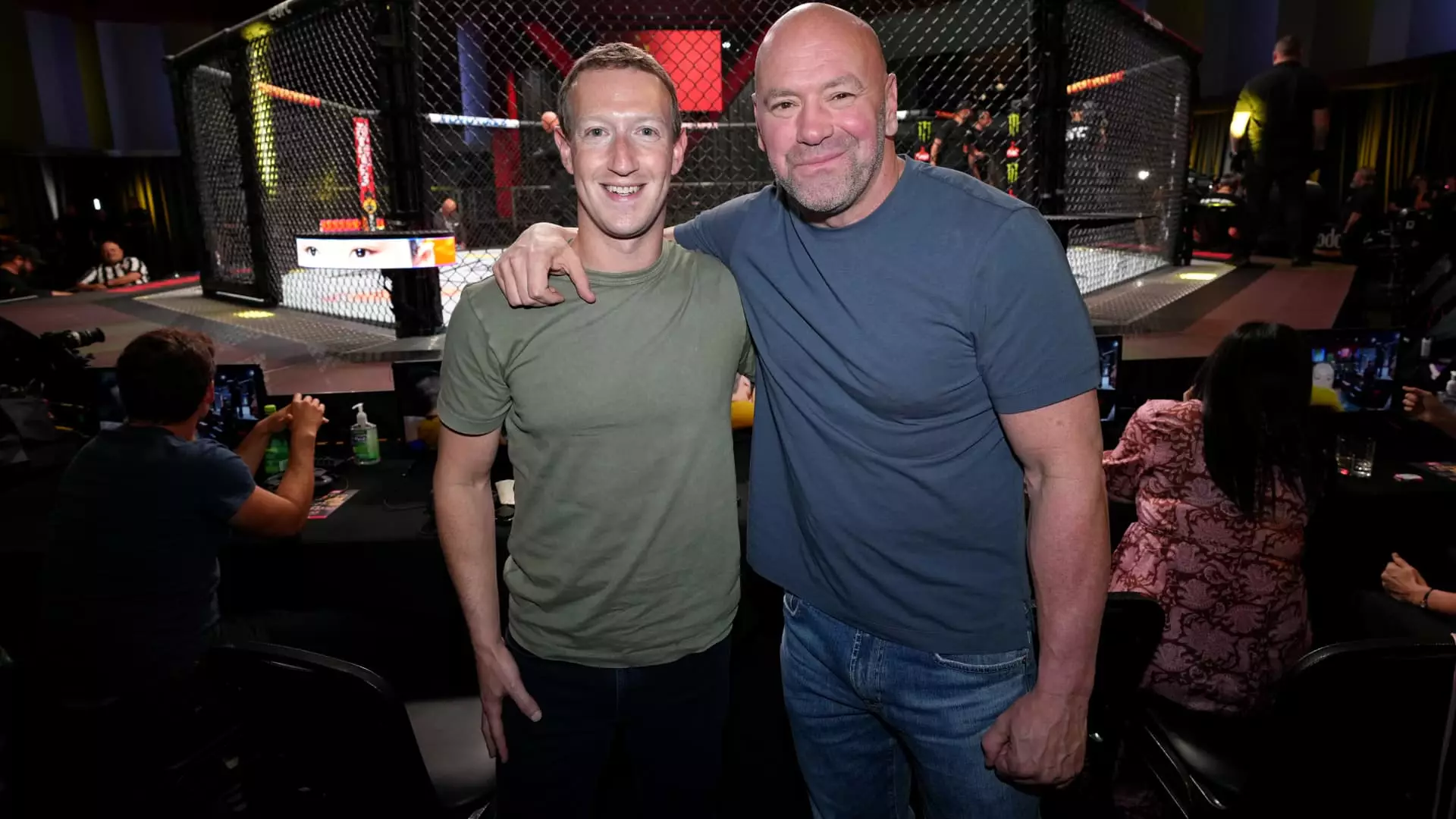In a move that has raised eyebrows across multiple sectors, Dana White, CEO of the Ultimate Fighting Championship (UFC), is set to join the board of directors at Meta, Facebook’s parent company, just weeks before the inauguration of President-elect Donald Trump. This appointment signifies more than just a business transition; it intertwines the worlds of sports, social media, and political affiliations, highlighting how interconnected these realms can be.
Dana White has long been associated with Donald Trump, both personally and professionally. Their friendship has been well-documented, and White’s strong advocacy for Trump shines through various public appearances, including a notable stint on election night where he passionately endorsed the President-elect. White’s relationship with Trump goes beyond casual acquaintance; it reflects a broader trend where sports figures align themselves with political entities that resonate with their personal beliefs and business interests. This phenomenon not only shapes the public image of these athletes and executives but also impacts their organizations, as fans may feel a certain way about their favorite sports figures based on their political stances.
Meanwhile, Meta’s decision to bring White onto its board introduces an interesting dynamic, especially considering the somewhat tumultuous history between Mark Zuckerberg and Trump. Zuckerberg’s recent acknowledgment of White as an entrepreneur who has transformed the UFC into a global phenomenon adds an element of strategic planning. By integrating a figure like White into the leadership team, Meta appears to be leaning into diversification in stakeholder perspectives, especially during a time of stark political division in the United States.
Zuckerberg’s foray into mixed martial arts is indicative of a larger trend among tech CEOs who are increasingly exploring personal passions. His journey into the fight game—culminating in a serious injury during training—signals a deeper cultural engagement with combat sports than one might typically expect from Silicon Valley leaders. Zuckerberg’s interest compounds the relevance of his partnership with White; it’s not just about business, but also about a shared passion for a sport that stirs a variety of emotions on societal fronts.
Zuckerberg has strategically used his social platform to engage with the public and promote UFC events, demonstrating how social media can elevate sports visibility. His platform has become a vital space for UFC announcements and fan interactions. This crossover, coupled with White’s acumen for creating a strong brand identity for UFC, sets the stage for a unique collaboration that could yield innovative marketing strategies or community projects that blur the lines between sports entertainment and technological innovation.
Nevertheless, White’s appointment is not without its complications. His history of controversy, notably following a public altercation with his wife, raises questions about accountability and corporate governance. White’s actions and subsequent public apology highlight a broader societal discussion about behavior and the expectations placed upon high-profile figures. While he continues to lead UFC successfully, critics often wonder if personal conduct can jeopardize professional pursuits. Meta, already facing its share of scrutiny regarding data privacy and user security, will need to manage the potential ramifications of having a controversial figure like White on its board.
Furthermore, Musk’s past associations with UFC through Ari Emanuel’s Endeavor Group add an additional layer of interest. As a dynamic innovator, Musk’s exit from Endeavor after being on their board for only one year serves as a reminder of the fluid nature of corporate alliances in the entertainment realm. Nonetheless, with both Musk and White involved in similar sectors, the potential for collaborations between tech and sports remains ripe for exploration.
Zuckerberg elaborated on the future goals of Meta in light of these changes, emphasizing the company’s ambition in artificial intelligence and wearables. By appointing figures with diverse backgrounds, Zuckerberg seems to be paving a path toward holistic growth that transcends traditional boundaries. The inclusion of individuals like John Elkann and Charlie Songhurst in addition to White indicates a commitment to multifaceted innovation.
As Meta progresses in the shifting landscape of social media, engaging audiences in the context of sports and entertainment could very well prove beneficial. The board’s diverse expertise potentially complements Zuckerberg’s vision and represents a strategic pivot toward an inclusive approach in transforming current and future engagements.
Dana White joining Meta’s board signifies an intriguing intersection of sports, politics, and technology. It exemplifies how influential figures can mold public perceptions and facilitate dialogues around broader societal issues through the prism of sports and media. As these relationships unfold, observers will be keenly watching how they shape the discourse surrounding both Meta and the UFC moving forward.

